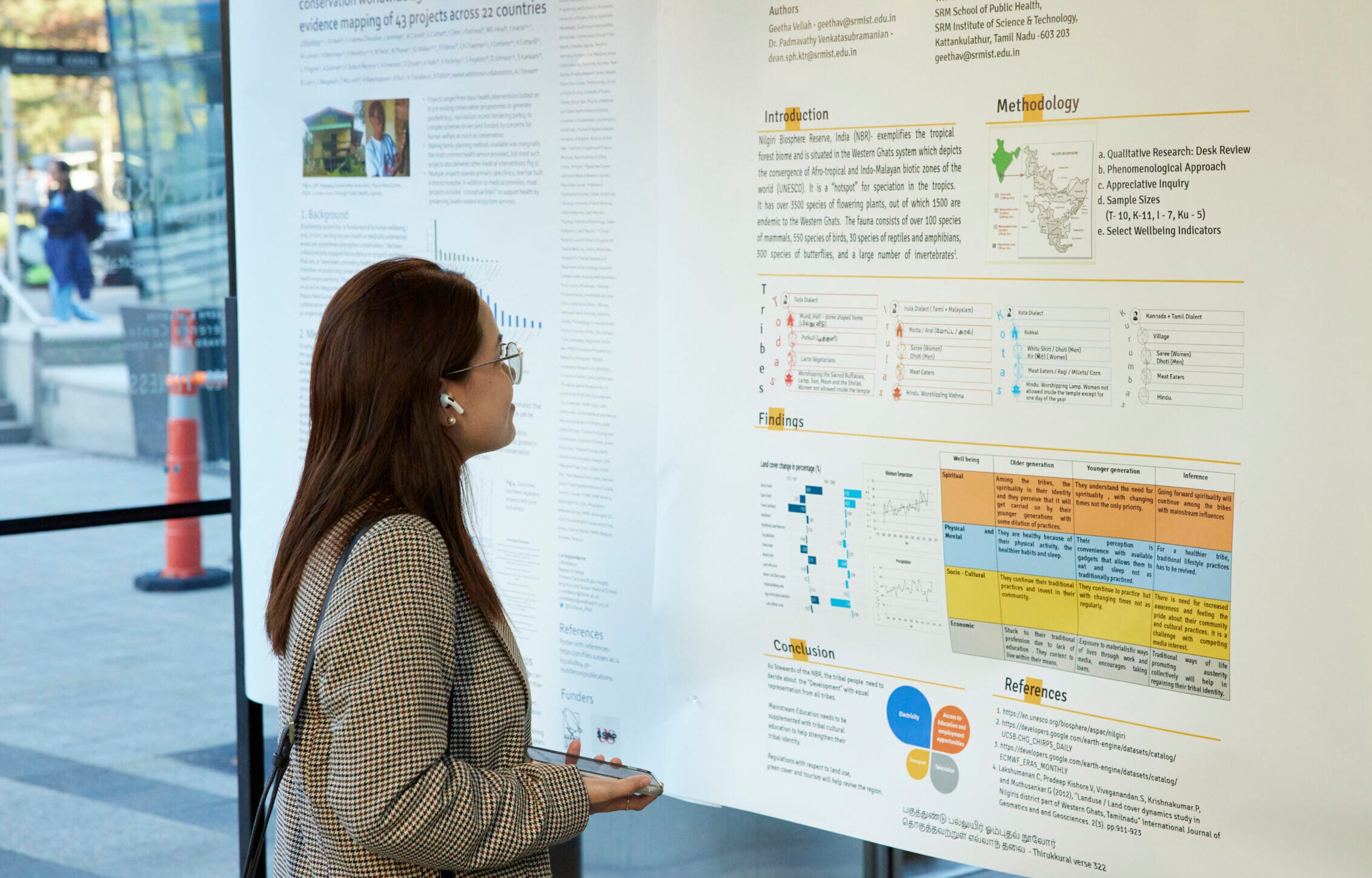Master of Public Health – Quantitative Methods

Complete the form linked below to receive additional information about Harvard Chan School’s degree programs.
Summary
The 45-credit Master of Public Health in Quantitative Methods provides students with the analytical and quantitative skills they need to successfully approach and solve problems in public health.
The program is designed for established health professionals and research scientists, as well as those in the early stages of their careers. Questions about the program? Contact mph@hsph.harvard.edu.
About
Students who choose Quantitative Methods as their specialized field of study are passionate about clinical and population-based health research and dedicated to learning the tools to translate new scientific discoveries into actions.
In addition to providing broad perspectives on general aspects of public health, the MPH in Quantitative Methods trains students in advanced analytical and quantitative methods and teaches them how to apply problem-solving skills in real-world situations.
Graduates are prepared to fulfill professional positions in clinical and population-based health research in government, health care institutions, and private industry.
On Campus (Summer or Fall start) • Full-time (1 year) • Part-time (2 years)
Curriculum
MPH core requirements:
- ID 100: Foundations for Public Health
- BST 201: Introduction to Statistical Methods
- EPI 201: Introduction to Epidemiology: Methods I
- EPI 202: Epidemiologic Methods II: Elements of Epidemiologic Research
- MPH 101: Qualitative Methods for Public Health
- MPH 102: Health Systems
- MPH 103: Leadership and Communication
- MPH 104: Social, Behavioral, and Structural Determinants of Health
- MPH 105: Public Health Policy and Politics
Applied practice experience and integrative learning experience:
- ID 945: Applied Practice Experience and Integrative Learning Experience for Quantitative Methods
Field of study requirements:
- Regression course
- 5 credits of intermediate or advanced courses in epidemiology, biostatistics, demography, decision sciences, or other quantitative sciences
- One additional practice course or research project
The courses below are popular elective options for Quantitative Methods students. Explore the Harvard Course Catalog to view the breadth and depth of elective courses available at the Harvard Chan School, other Harvard Graduate Schools, and the Massachusetts Institute of Technology.
- BST 223: Applied Survival Analysis
- BST 226: Applied Longitudinal Analysis
- EPI 523: Investigating Outbreaks
- RDS 280: Decision Analysis for Health and Medical Practices
Competencies
- Critically evaluate and apply principles of epidemiologic methods, including exposure and outcome measures, measures of association, bias and confounding, and study design options
- Demonstrate the ability to critically evaluate and apply appropriate biostatistical techniques for data arising from evaluation of public health problems (e.g., including basic probability theory and common distributions, effect measure estimation, continuous and categorical data analysis, parametric and non-parametric hypothesis tests, confidence intervals and p-values, correlation and basic regression techniques, and power/sample size calculations)
- Design, implement, evaluate, and interpret univariate and multivariable regression methods appropriate for data arising from relevant public health and clinical research problems
- Apply and critically evaluate causal inference methods, such as the application of counterfactual conceptualizations and the use of Directed Acyclic Graphs, to the setting of observational studies relevant to public health and clinical applications
- Assess the validity and efficiency of different study designs for specific research questions through critical evaluation of contemporary studies published in the peer-reviewed literature
Our Community
Committed, Accomplished, Collaborative
As a Harvard Chan MPH student, you will work in a collaborative classroom environment alongside talented students from around the world and from a variety of academic and professional backgrounds. You will take advantage of the extraordinary resources of Harvard University and Boston’s Longwood Medical Area—home to Harvard Medical School, Brigham and Women’s Hospital, Boston Children’s Hospital, the Dana-Farber Cancer Institute, and other world-class health facilities. You will meet global leaders and work with world-renowned faculty members. And when you graduate, you will benefit from Harvard’s unparalleled global network of alumni leaders.
One of the reasons I was drawn to Harvard Chan School was the opportunity to join an amazing network. I had the sense—and this has been confirmed—that for every field of public health you’re interested in, there’s either a world leader here or someone who knows a world leader.
Jeremy Cygler, MPH ’24

Career Outcomes
An MPH degree opens an extraordinary number of pathways to a meaningful career. Graduates of the MPH program are trained to pursue careers in a variety of industries:
- Academic medicine
- Biotech/pharma
- Consulting
- Government
- Health care management
- Hospital/health care delivery
- Non-profit/Non-government organizations
- Private practice
- Private sector institutions
- Public health agencies
- University/research
Eligibility Criteria
Applicants for the MPH 45-credit degree program in Quantitative Methods must have one of the following:
- A master’s degree in a health-related field—for example, MSN, MSW, MBA—plus at least two years of relevant health experience.
- A prior doctoral degree—for example, MD, DO, DMD, DDS, PhD, SD, JD—or equivalent.
- Completed the primary clinical year of medical or dental school. For more information, visit Joint/Combined Degrees.
Application Requirements
All applications must be submitted through SOPHAS – the centralized application service for public health programs. In addition to the application, applicants must submit:
- Statement of purpose and objectives
- Standardized test scores (optional)
- Three letters of reference
- Resumé/curriculum vitae
- Post-secondary transcripts or mark sheets (World Education Services credential evaluation for applicants with degrees from outside of the United States)
- English language proficiency (TOEFL/IELTS/Duolingo English Test), if applicable
Application Deadline: December 1
Applicants may apply to only one degree program for either full- or part-time status. Applications are reviewed in their entirety and decisions are released via email in late February/early March. Decisions are not released until all application components are received.
Unleash your potential at Harvard Chan School.
In addition to our degree programs, we offer highly targeted executive and continuing education, directed and taught by Harvard faculty.